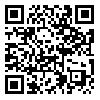BibTeX | RIS | EndNote | Medlars | ProCite | Reference Manager | RefWorks
Send citation to:
URL: http://journal.rums.ac.ir/article-1-2233-en.html
The Applied of Health Belief Model in Knowledge, Attitude and Practice in People Referred for Diabetes Screening Program: An Educational Trial
R. Sadeghi[1], M. Rezaeian[2], N. Khanjani[3], A. Iranpour[4]
Received: 23/08/2014 Sent for Revision: 25/10/2014 Received Revised Manuscript: 22/11/2014 Accepted: 2/12/2014
Background and Objective: Diabetes is a chronic disease capable of causing serious complications affecting the circulatory and nervous systems, kidneys, eyes, and feet, and is associated with high rates of morbidity and mortality. Given the enormous economic and social burdens of diabetes, screening is performed in health care service centers.. This study was conducted to determine the effectiveness of the Health Belief Model (HBM) on, Knowledge, Attitude and Practice of people over 30 years old referred for diabetes screenings.
Materials and Methods: This research was an educational trial study. Eighty people over 30 years old attending health centers in Sirjan town, were selected to participate in this study (40 in intervention group and 40 in control group). The intervention was conducted over two sessions in 60 minutes. Data were collected by a validated and reliable questionnaire (64 questions) before intervention and three months after that. Data was analyzed by chi-square, fisher's exact, paired t and independent t-tests.
Results: After intervention, knowledge scores significantly increased in both intervention and control groups, which were probably due to the routine education program in that center. But significant increase in attitude and practice was only observed in the intervention group. Also perceived benefits, perceived barriers and cues to action significantly increased in the intervention group compared to the control group (p<0.001). But, there was not any significant difference in the control group.
Conclusion: The Health Belief Model was effective in educating the people over 30 years old. Therefore, it is proposed traditional training methods along with the Health Belief Model in training people over 30 years old.
Key words: Diabetes, Health Belief Model, Knowledge, Attitude, Practice
Funding:
Conflict of interest: None declared.
Ethical approval:The Ethics Committee of Kerman University of Medical Sciences approved the study.
How to cite this article: Sadeghi R, Rezaeian M, Khanjani N, Iranpour A. The Applied of Health Belief Model in Knowledge, Attitudes and Practice in People Referred for Diabetes Screening Program: An Educational trial. J RafsanjanUniv Med Sci 2015; 13(11): 1061-72. [Farsi]
[1]- MSc in Health Education, Research Center for Modeling in Health, Institute for Futures Studies in Health, Kerman University of Medical Sciences, Kerman, Iran
[2]- Prof., Occupational Environmental Research Center, Dept. of Social Medicine, School of Medicine, Rafsanjan University of Medical Sciences, Rafsanjan, Iran
(Corresponding Author): Tel: (034) 34264003, Fax: (034) 34255209, E-mail: moeygmr2@yahoo.co.uk
[3]- Associate Prof, Dept .of Epidemiology and Biostatistics, Research Center for Environmental Health Engineering, Kerman University of Medical Sciences, Kerman, Iran
[4]- PhD in Health Education, Research Center for Modeling in Health, Institute for Futures Studies in Health, Kerman University of Medical Sciences, Kerman, Iran
Received: 2014/07/13 | Accepted: 2015/03/8 | Published: 2015/03/8
| Rights and permissions | |
 |
This work is licensed under a Creative Commons Attribution-NonCommercial 4.0 International License. |






